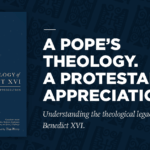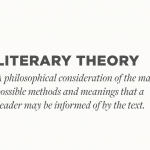
In his new book, Nature’s Case for God, John Frame argues the Bible isn’t God’s only revelation. Though this might seem scandalous at first, he makes the case that Scripture itself shows it is possible to learn about God from his creation.
In this excerpt, Frame tackles the objection that natural theology violates the Protestant principle of Sola Scriptura: Scripture alone.
Natural theology traditionally denotes the attempt to learn about God through revelation outside the Bible. Although natural theology has been an important discipline historically, as in the writings of Thomas Aquinas, its prestige more recently has fallen considerably. When Emil Brunner wrote a rather mild defense of the discipline, Karl Barth answered him with a thundering reply, named simply “NO.”
Since then, anyone approaching this subject has had to give an argument for its legitimacy. This requirement bears especially on apologists of the presuppositional school of apologetics, the school I am associated with.
Now there are good reasons for objecting to natural theology. Barth’s objections arise out of his unique conception of the christological focus of all revelation, but a Protestant who is more traditional and orthodox than him might also reject natural theology. Those who are committed to the Christ of Scripture ask how we can seek to know anything without the aid of Scripture, let alone try to know God without it. That would be like a student who ignores the entire reading list for a course in chemistry and seeks to answer the exam questions out of his own head. Not only does Scripture provide important knowledge about God, but in one sense, Protestant theologians have always said that Scripture is sufficient to tell us what we need to know about him. Hence the Reformation motto sola Scriptura.
It might seem, therefore, that for Protestants, natural theology is a violation of that principle. But in fact, the principle does not forbid us to seek knowledge of God from creation. Rather, Scripture itself tells us that God is revealed everywhere and that human beings are therefore under obligation, not only to hear God’s word in Scripture, but to obey his revelation in all creation.
So my defense of natural theology is a simple one. The Bible says that God is revealed in everything he has created, not only in the Bible. This is especially evident in Psalm 19 and Romans 1. It is Scripture itself that tells us to look at the created world to see the imprint of its Creator.
The heavens declare the glory of God, and the sky above proclaims his handiwork. (Psalm 19:1)
For his invisible attributes, namely, his eternal power and divine nature, have been clearly perceived, ever since the creation of the world, in the things that have been made. (Romans 1:20)
These passages teach us that it is impossible to escape the evidence for God, indeed to escape his presence with us. The Creator has left his mark on his creation. The second passage, of course, is very negative, for it is directed to those who rebel against God. But that fact increases its force: even rebels know God clearly, so that their unbelief and rebellion is their own fault. Note that their knowledge is not only a knowledge of facts about God. Verse 21 puts it in personal terms: they actually know God; they have a personal knowledge of God, of course as enemies rather than as friends. So their knowledge is intimate and profound, as well as correct.
These passages describe a universal knowledge of God. Even people who don’t read the Bible know God and are responsible for their unbelief.






